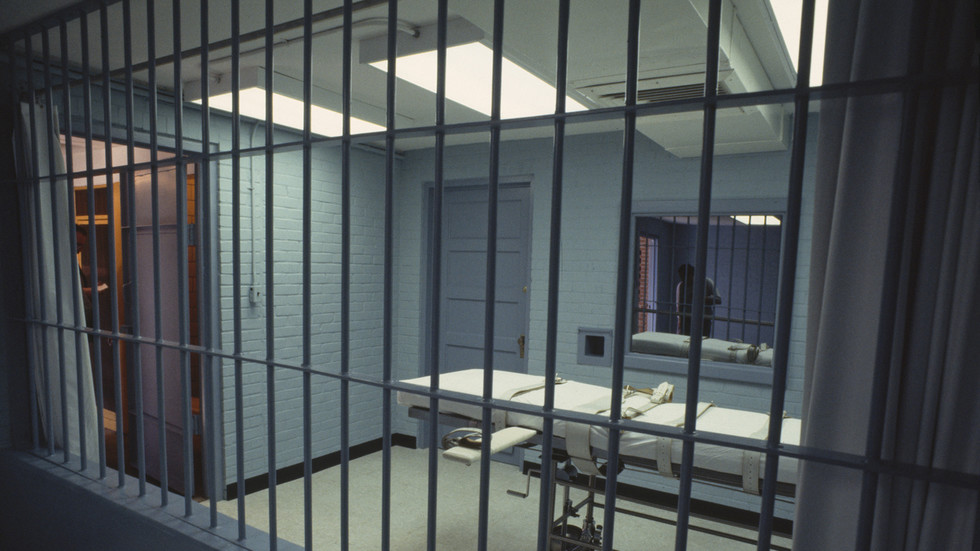Israeli Prime Minister Benjamin Netanyahu
is sticking to his hard-line approach on Hamas, in the face of mass protests at home over the killing of six
hostages
and the suspension of some British arms licenses.
A general strike called by the main labor union on Monday — joined by major companies and small businesses alike — triggered a day of chaos as protesters blamed Netanyahu for allowing the hostages to die at the hands of their captors.
That came as the US pushes Israel’s leader to agree to a cease-fire with the Palestinian militant group, while the UK said the use of British components in Gaza risks violating international humanitarian law.
Israeli businesses resumed trading as normal on Tuesday, with the nation taking a pause from rallies after the funerals of the slain prisoners.
The demonstrators were calling on the government to give more ground in truce talks with Iran-backed Hamas, so a deal can be struck to bring home the roughly 100 remaining abductees and pause a war that’s raged for almost 11 months.
Defense Minister Yoav Gallant shares that view, while many senior military figures say Israel has weakened Hamas sufficiently to pull forces from the border between Gaza and Egypt. That would allow an exchange of hostages for Palestinian prisoners in an initial phase of a wider agreement.
But in a highly charged televised speech on Monday night, Netanyahu said the 14-kilometer (8.7-mile) border area, known as the Philadelphi Corridor, is the key supply route for Hamas and thus should never be abandoned. To do so, he said, would increase the threat of an attack on Israel similar to the Oct. 7 invasion that triggered the conflict.
One barrier to a cease-fire deal is that Israel says it needs to retain the right to restart fighting to achieve its aim of destroying the group. Hamas has said any accord should amount to a permanent end to the conflict.
Diaspora Affairs Minister Amichai Chikli, a member of Netanyahu’s Likud Party, said in a phone interview that the murder of the six hostages found over the weekend “changed the situation with Hamas.”
“Some are saying, ‘Let’s surrender and give up the Philadelphi Corridor’,” he said. “We are saying we will never surrender. If before we were willing to have a reduced presence, that’s no longer the case.”
Egypt and Hamas, designated a terrorist organization by the US, say they’ll never accept an Israeli military presence in the area.
Hit Harder
Netanyahu said in his speech that Israel’s military is examining options to hit back harder at Hamas to avenge the hostage deaths. Chikli said he and several other ministers favor taking a few kilometers of land from northern Gaza as payback. While unlikely to be taken up, that plan would prove highly controversial with the US and other allies.
Hamas has also hardened its stance. Israeli military pressure to free hostages “will mean they will return to their families inside coffins,” the group said in a statement. “New instructions were issued to the militants assigned to guard the prisoners if the occupation army approaches their place of detention.”
Hamas published a video showing brief statements by each of the six dead hostages. It wasn’t clear when the clips had been filmed but the move deepened the sense of grief felt by many Israelis. Several of the six were on the list of hostages expected to be released in the first phase of a deal brokered by the US, Egypt and Qatar, which has been stalled for several months.
US President Joe Biden said on Monday a truce is getting closer, though when asked by a reporter if Netanyahu is doing enough to free hostages, he said simply, “No.” Asked when he’d speak to the Israeli leader, he said, “Eventually.”
And while the UK isn’t among countries sending weapons to Israel directly, the suspension of some arms licenses gave an indication of how in some cases public pressure is motivating foreign governments to soften their support.
The US has stood firmly by Israel in its war against Hamas in Gaza, which began when thousands of Hamas operatives swarmed across the border, killing 1,200 people and abducting 250. Israel’s counter-attack has killed more than 40,000 Palestinians, according to health officials in Hamas-run Gaza, which don’t distinguish between civilians and fighters.
Much of Gaza has been reduced to rubble, with many of its more than 2 million residents forced into tented camps and suffering from hunger, poor hygiene and illness. This week, a massive polio vaccination campaign is under way to stem the disease, which broke out due to poor conditions.

 3 months ago
18
3 months ago
18









